Have you ever wondered why sometimes God does a miraculous deliverance and other times God seems to be nowhere to be found and you feel like you plod through adversity alone?
 One of my favorite Facebook posts of all time was a cartoon that was Jesus answering the question, “Where were you?” to a guy who saw one set of footprints in the sand. This guy felt like he was walking through life alone and Jesus said, “The one set of footprints was when I carried you.” And then Jesus, in this cartoon, points off to the side and said, “And that long groove over there is when I dragged you for a while.” This notion of kicking and screaming is familiar to me.
One of my favorite Facebook posts of all time was a cartoon that was Jesus answering the question, “Where were you?” to a guy who saw one set of footprints in the sand. This guy felt like he was walking through life alone and Jesus said, “The one set of footprints was when I carried you.” And then Jesus, in this cartoon, points off to the side and said, “And that long groove over there is when I dragged you for a while.” This notion of kicking and screaming is familiar to me.
Can anyone (other than me) relate to that one?
So today’ we’ll look at 3 ways God is there to deal with opposition for us: Carry Us, Dragging Us Through, and Miraculous Deliverance, today’s “jailbreak”.
Well, there’s no kicking and screaming done by Peter and John in today’s passage and yet God carries them. He does it through a miraculous delivery—a jailbreak. The scene from Acts 5 begins in the public square where the apostles are doing all kinds of miraculous demonstrations of power as a Pure Church, Powerful Church and they become a Growing Church. What we saw last week.
All that growth gets noticed…and it makes the religious leaders—the high priest, his coworkers, and all the Sadducees—really jealous. You may remember the pattern from last week Pure Church, Powerful Church, and Growing Church…leading to the Persecuted Church. And this week we see it.
Jealousy is but one reason that opposition happens.
I’ve been thinking this week about opposition that is rising around the globe against Christians and against Jews because of our mutual belief that the Messiah is a Jewish one.
Opposition to us arises out of jealousy, yes, but also out of hatred, pride—small but evil gods of self–as well as a whole-hearted devotion to the wrong god.
Maybe you’ve wondered some of the same things I have regarding the fanatical fringe of Islam doing all the recent atrocities. What must they believe?
- What kind of god of Islam would demand that people convert or be murdered in all kinds of atrocious ways?
- What kind of god of Islam would command his followers to gain converts or adherents by intimidation…or if they won’t behave, kill them? That’s like from Star Wars where Governor Tarkin answers the question of how to maintain control without the bureaucracy by saying, “Fear will keep the local systems in line. Fear of this battle station!” Or like Darth Vader after that strangulation move, “Apology accepted, Captain Needa.”
- What kind of god of Islam would be honored at his followers purging the world of infidels instead of trying to share good news that might save them?
- Why would anyone worship a god that is primarily a spiritual bully, a gang enforcer, or serial killer? For that is clearly what the fanatical fringe believes.
I don’t get it. In today’s passage, however, the opposition is rooted in jealousy. It’s powerful motivator, appealing to human desires of pride and selfishness. Jealousy makes people do bad things. Even the Jewish spiritual leaders of the day. They see the Growing and Powerful Church, and what does opposition do? They counter the spiritual power of the Growing Church with human power in persecuting which takes the form of jail, and increasing as beatings, financial punishment, threats and intimidation, up to killing, just as it did with Christ.
Acts 5:17 Then the high priest and all his associates, who were members of the party of the Sadducees, were filled with jealousy. 18 They arrested the apostles and put them in the public jail.
So the disciples are in prison. The last time that they were imprisoned, they got chewed out and told not to do it anymore. The consequences are worse this time, as that cycle of persecution intensifies. This time they were going to be officially charged in front of the Sanhedrin,
… but God had something else in mind.
19 But during the night an angel of the Lord opened the doors of the jail and brought them out.
It reminds me of that scene in the movie The Santa Clause in which the ELFS (Effective Liberating Flight Squad) uses curling ribbon to tie up the guard and then uses tinsel to cut through the hinges in order to liberate Santa. “Tinsel. Not just for decoration.” they said.
There’s no evidence that the angel used tinsel. There’s no evidence that the angel used anything at all. It was just God’s power to deliver these disciples out of prison—a jailbreak. Which is pretty incredible when you think about it.
Actually the whole scene is pretty interesting. There are a lot of jailbreaks/prison escapes we see on TV, books, and in the movies. Santa. Movies like, The Fugitive, Shawshank Redemption, Escape from Alcatraz, The Great Escape, Cool Hand Luke, Count of Monte Cristo, etc, but it’s not always good guys getting out, or those unjustly imprisoned. Sometimes it’s bad guys trying to break out of prison. Bad guys, like that with the guy in Paris who radicalized at least one of the Charlie Hedbo killers.
But in our case today, it’s two good guys that God wanted back on duty. He was setting them free so they would get back to work. The angel gives Peter and John instructions:
20 “Go, stand in the temple courts,” he said, “and tell the people the full message of this new life.”
Don’t hide. Stand in the most public place you can find. Don’t compromise. Don’t short cut. Don’t whitewash or gloss over anything. Don’t do it in secret. Don’t do it in a whisper. Proclaim it! Publically!
Bold witness is something we’ve seen in Acts before and it was a characteristic of the early Church and how God grew it from a tiny band of rag tag unschooled, ordinary men into an international phenomenon that has been growing for almost 2000 years. It started with a couple of guys telling the people the full message…of this new life.
Now is a good time for us to pause and make something clear: God didn’t gift us all to be evangelists like Billy Graham. God does ask us to share the Good News when opportunities arise, but He doesn’t command that we drive the full Gospel dump truck up to unsuspecting people and dump the whole thing on them. One of the reasons I bring up contemporary issues or news stories in my message each week is to model for us all… how approaching the Gospel or talking about God… can be as normal as talking about the news. This broken world is the perfect context in which the Good News is genuinely good.
20 “Go, stand in the temple courts,” he said, “and tell the people the full message of this new life.”21 At daybreak they entered the temple courts, as they had been told, and began to teach the people.
Obedience to God characterizes these disciples. They didn’t hem and haw. They didn’t delay. They didn’t debate with the angel for a while about whether it was going to work. They didn’t offer alternatives the angel needed to consider, reminding him and God about how the last time this got them in jail. No equivocation even as these fugitives probably feared for their lives under opposition from the religious leaders.
No messing around when it comes to obeying God.
This is the power of teaching spiritual truths. It arouses the jealously of those who don’t like God or His truth. Simple obedience to God can result in unjust hatred by the world! Jesus told us this would happen. But we shouldn’t fear His instructions because it’s not like we’re serving some god who tells us to convert people at the point of the sword, the barrel of the gun, or the slice of a knife. We aren’t armed like that.
Our God is not a serial killer.
What are we armed with? The Word. The Truth and good news of God’s great love. We armed with God’s power in His truth and His Gospel of good news.
So back to our story, the apostles have gone at daybreak into a public place and are doing what they’ve been told by the religious leaders not to do. It’s civil disobedience, not by chanting words of violence or hatred, not by organizing marches, not by torching local businesses, and not by intimidating power in numbers staging die-ins during Christmas at innocent retailers.
This civil disobedience is as simple as two men obeying God by standing for something positive:
Good News of Great Joy. The Gospel of Salvation!
When the high priest and his associates arrived, they called together the Sanhedrin– the full assembly of the elders of Israel– and sent to the jail for the apostles.
(They were ready to pressure the disciples as a full crowd of people with political power! Go get them and we’ll apply collective pressure and intimidate them to make them stop!)
22 But on arriving at the jail, the officers did not find them there. So they went back and reported, 23 “We found the jail securely locked, with the guards standing at the doors; but when we opened them, we found no one inside.”
Isn’t that interesting? The angel opened the door and let the disciples out. I don’t know how or when he locked it back up and yet the guards never even saw them leave. I have no idea how that happens other than it’s a miraculous deliverance. Sometimes that’s what God does. More than just one set of footprints carrying us over the worst of it.
Other times He carries us in other ways or holds our hand as we walk through it together.
And true, sometimes He drags us through it if we’re unwilling to or simply cannot do it of our own strength or will…out of necessity…because there is no other way.
Has God ever dragged you kicking and screaming?
God with His full knowledge may drag us because He knows we’d do what we’re told…if we knew what He knows. Like when He was going to destroy Sodom and Gomorrah because it was beyond redemption, so thoroughly evil! Genesis 19:10 But the men inside reached out and pulled Lot back into the house and shut the door. 11 Then they struck the men who were at the door of the house, young and old, with blindness so that they could not find the door. 12 The two men said to Lot, “Do you have anyone else here– sons-in-law, sons or daughters, or anyone else in the city who belongs to you? Get them out of here, 13 because we are going to destroy this place. The outcry to the LORD against its people is so great that he has sent us to destroy it.” 14 So Lot went out and spoke to his sons-in-law, who were pledged to marry his daughters. He said, “Hurry and get out of this place, because the LORD is about to destroy the city!” But his sons-in-law thought he was joking. 15 With the coming of dawn, the angels urged Lot, saying, “Hurry! Take your wife and your two daughters who are here, or you will be swept away when the city is punished.” 16 When he hesitated, the men grasped his hand and the hands of his wife and of his two daughters and led them safely out of the city, for the LORD was merciful to them.
(They flee to a neighboring town and Lot’s wife can’t keep herself from looking back and becomes a pillar of salt.)
27 Early the next morning Abraham got up and returned to the place where he had stood before the LORD [pleading for saving Lot’s life]. 28 He looked down toward Sodom and Gomorrah, toward all the land of the plain, and he saw dense smoke rising from the land, like smoke from a furnace. 29 So when God destroyed the cities of the plain, he remembered Abraham, and he brought Lot out of the catastrophe that overthrew the cities where Lot had lived.
God is gracious to deliver us out of evil. To deliver us from evil, as we pray in “The Lord’s Prayer”. God knows the tipping point of no return for the hearts of those who hate Him and who will always hate Him. He knows the point of required deliverance for those who love Him…which is what He did here with Peter and John. They’re out of prison and preaching the Good News, the full message of new life in the public square. A miraculous deliverance from prison.
24 On hearing this report, the captain of the temple guard and the chief priests were puzzled, wondering what would come of this.
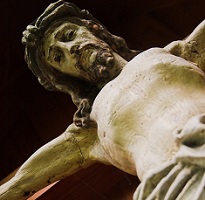 Sometimes God delivers us through a miraculous means. If you know Jesus as your Lord and Savior, you’ve already been delivered once through a miraculous means. Let me say that again:
Sometimes God delivers us through a miraculous means. If you know Jesus as your Lord and Savior, you’ve already been delivered once through a miraculous means. Let me say that again:
If you know Jesus as your Lord and Savior, you’ve already been delivered once through a miraculous means. The blood of Christ!
And on top of that, as a normal course of daily life, He delivers us through average means:
- Medical treatments that eradicate the cancer or dietary choices that will keep us from diabetes or heart attacks.
- Maybe a series of events that cause the loss of one job where your work for Him is done so He can deliver you into the next place of fruitful service.
- Maybe a relocation that takes you out of a place of no return into a new place of promise—a Promised Land, of sorts—where He intends to bless you and others.
- Maybe a long stoplight or freight train that you’re frustrated about…is the time delay that keeps you from being hit by the drunk driver. Because God’s not done with you yet!
Peter and John were delivered out of prison so they could get back to work for Jesus.
That said, sometimes we aren’t delivered out of… but are made stronger through the difficulties. Maybe some are in bad marriages, have prodigal children who break their hearts, or jobs that just seem to go from bad to worse. Why doesn’t God do something?
The denomination that trained me, the Evangelical Free Church of America, went through a bit of a doctrinal change a few years back on a somewhat obscure plank of their statement of faith (at least from an average pew-sitter’s perspective). They revisited their position on “premillennialism” which is big word regarding the end times. All wrapped up in that idea is something like in the Left Behind movie “In one chaotic moment, millions people around the world suddenly disappear leaving their clothes, wedding rings, eye glasses and shoes in crumpled piles.” The people are raptured. They disappear. Their clothes are left behind. A bunch of naked people showing up in heaven. And it’s before worse things than naked people happen on earth in something called the great tribulation. The people are saved up and out of…and before anything worse starts happening.
This view of the rapture of believers, rapture of the church before the bad stuff, is commonly believed throughout the church worldwide, even lauded by some. But, I think it is wishful thinking to hold a view of the church that exempts us from bad stuff. Personally, I do not see it fitting the biblical pattern….of delivering people through:
- Through the famine in Egypt by sending the Hebrew Joseph to manage the years of plenty in preparation for enduring the years of famine.
- Through the slavery by the bricks without straw, the plagues, until the Exodus.
- Through the Red Sea on dry land, even while being chased by chariots and armies.
- Through the wilderness with manna and quail.
- Through the Crucifixion of Christ who did not avoid, but endured the Cross and death and rose victorious.
Peter and John were delivered out of prison only to find themselves back there before we know it, proving the point C.S. Lewis makes:
“Hardship often prepares an ordinary person for an extraordinary destiny.”
When we’re not being delivered miraculously, or even by average means, our prayer should be that God will deliver us through it, that long groove where He drags us for a while, even kicking and screaming as we don’t understand the why’s. Our prayer should be that we’ll trust Him with our lives, knowing that we’ve already experienced one miraculous deliverance from sin to saved. Our prayer should be focused on being obedient and faithful and willing to let the hardships we face prepare us in our heavenward calling.
As believers who have been miraculously delivered once, we can trust Him with the smaller deliverances, the footprints of His carrying us over the difficulties, the average means of medicine or technology, even our kicking and screaming with His hand forcibly leading us to safety because He is merciful.
Today’s jailbreak is a reminder that where God calls, He also provides in whatever way is required, even as He propels us back to our post, to do our duty as our obedience to Him. Sometimes He carries, sometimes He drags us, and sometimes He does it through a miraculous jailbreak.
Let’s pray.
 I like patterns. Maybe it’s that some of us never outgrow Sesame Street or mind-puzzlers, but I always liked those assignments in school where we had to figure out what comes next in the sequence by figuring out the pattern.
I like patterns. Maybe it’s that some of us never outgrow Sesame Street or mind-puzzlers, but I always liked those assignments in school where we had to figure out what comes next in the sequence by figuring out the pattern. But God always starts from a place of purity and grows us from there. God will not revive any church that doesn’t start with pure worship, for that is the source of the Church’s power. Pure Church Powerful Church, the power flowing from God being glorified! A light in darkness!
But God always starts from a place of purity and grows us from there. God will not revive any church that doesn’t start with pure worship, for that is the source of the Church’s power. Pure Church Powerful Church, the power flowing from God being glorified! A light in darkness!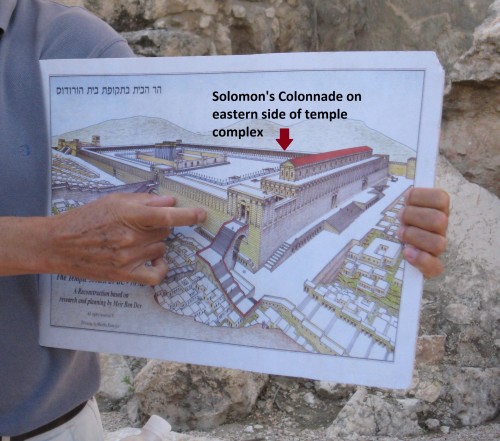
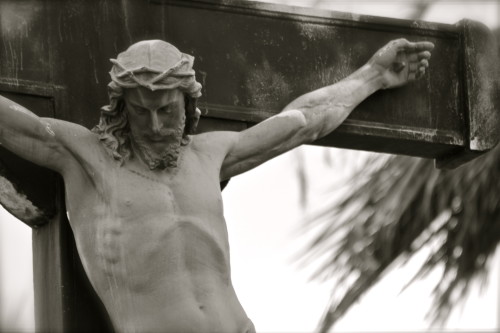 So these believers met in Solomon’s Colonnade, right there outside the Temple in Jerusalem.
So these believers met in Solomon’s Colonnade, right there outside the Temple in Jerusalem. There’s nothing like a New Year. All kinds of hopes and dreams and diets are reborn. All kinds of plans are made that will soon be forgotten, lost in the shuffle, or stripped of every ornament and left out at the curb.
There’s nothing like a New Year. All kinds of hopes and dreams and diets are reborn. All kinds of plans are made that will soon be forgotten, lost in the shuffle, or stripped of every ornament and left out at the curb. 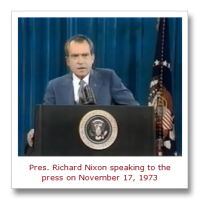
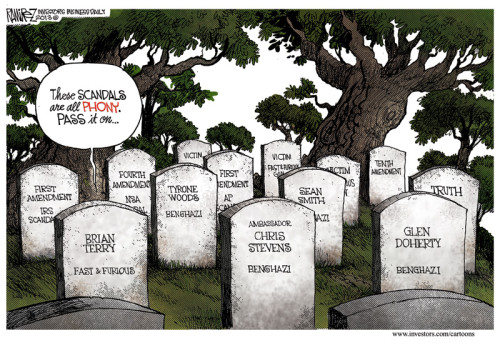
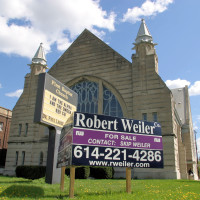 In the US, we don’t have to look too far to find a lot of mainline church denominations in decline.
In the US, we don’t have to look too far to find a lot of mainline church denominations in decline. Skipping Class All Semester Nightmare in which I find I don’t know any of the subject matter–even where the final exam is being held, which in my nightmare is always RIGHT NOW.
Skipping Class All Semester Nightmare in which I find I don’t know any of the subject matter–even where the final exam is being held, which in my nightmare is always RIGHT NOW.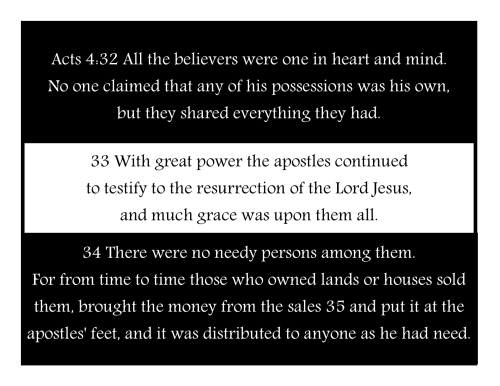 The other bookend description in v 34 says basically the same thing as v 32, both of which serve to highlight the stuff in the middle. Kind of like an Oreo. The cookies are there to support the filling. Not the other way around. What’s the good stuff in the middle? It’s verse 33.
The other bookend description in v 34 says basically the same thing as v 32, both of which serve to highlight the stuff in the middle. Kind of like an Oreo. The cookies are there to support the filling. Not the other way around. What’s the good stuff in the middle? It’s verse 33.  And by seeing someone’s needs being met, it reinforces the desire to do what one can. That’s why some receive God’s grace directly in the form of ownership and material blessing, and others receive God’s grace indirectly as those who have learned what it means to be Christian live out the Great Commission and share everything with others. Share and share alike!
And by seeing someone’s needs being met, it reinforces the desire to do what one can. That’s why some receive God’s grace directly in the form of ownership and material blessing, and others receive God’s grace indirectly as those who have learned what it means to be Christian live out the Great Commission and share everything with others. Share and share alike! Let’s take a time out to revisit my school nightmares and tie it to the outcome of stripping the grace out of charity. I wanted to apply it to something about which many of us can relate because money is a really uncomfortable subject for many people. Jesus, however, talked about money even more than He talked about hell, the devil, or sex. Money was a big deal to Jesus because it has the terrible potential to confuse the gift with the Giver, the blessing with the Blesser, and money forms even today the most seductive and insidious idol of this world’s economy. It sneaks up on us and draws us away from worshiping the One True God whose economy runs–not on money–but on grace.
Let’s take a time out to revisit my school nightmares and tie it to the outcome of stripping the grace out of charity. I wanted to apply it to something about which many of us can relate because money is a really uncomfortable subject for many people. Jesus, however, talked about money even more than He talked about hell, the devil, or sex. Money was a big deal to Jesus because it has the terrible potential to confuse the gift with the Giver, the blessing with the Blesser, and money forms even today the most seductive and insidious idol of this world’s economy. It sneaks up on us and draws us away from worshiping the One True God whose economy runs–not on money–but on grace. The World Still Hates Him. But God still loves us and reaches out to save us. He is God with us, Immanuel!
The World Still Hates Him. But God still loves us and reaches out to save us. He is God with us, Immanuel!